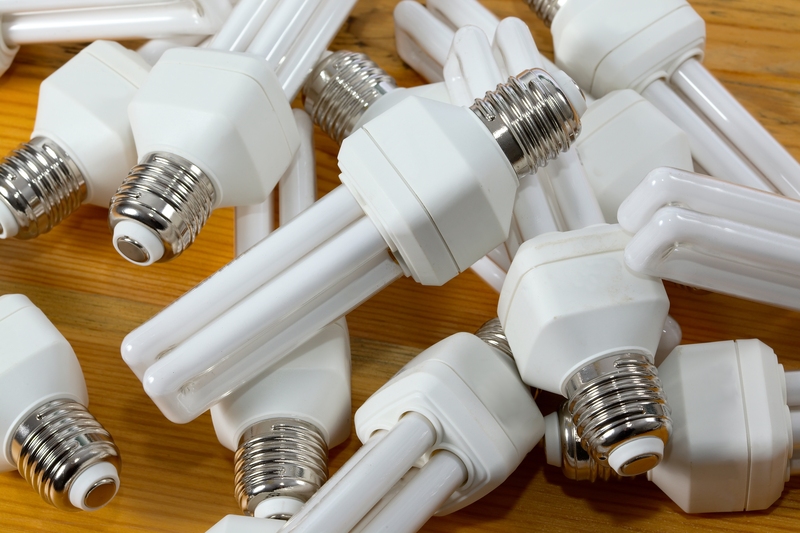How to Significantly Decrease Plastic Debris
Plastic pollution has emerged as one of the most pressing environmental issues of our time. From microplastics in our oceans to macro debris littering our landscapes, reducing plastic waste is critical for conserving ecosystems, protecting wildlife, and ensuring a cleaner future. If you're wondering how to significantly decrease plastic debris in your personal life, community, or even on a global scale, this comprehensive guide unveils effective strategies, practical tips, and innovative solutions.

Understanding Plastic Debris & Its Impacts
What Is Plastic Debris?
Plastic debris refers to discarded plastic materials that have entered the environment, either intentionally or accidentally. This category encompasses everything from large visible litter like bottles and bags to invisible microplastics resulting from the breakdown of larger plastics.
Why Is Plastic Waste a Big Problem?
Plastic debris doesn't biodegrade easily. Instead, it persists in the environment for hundreds of years, fragmenting into smaller particles that contaminate soil, waterways, and even the food chain. Wildlife often mistakes plastics for food, leading to injuries and fatalities, while toxic chemicals associated with plastics can leach into groundwater, affecting human health.
- Approximately 8 million tons of plastic end up in the oceans every year.
- More than 1 million seabirds and 100,000 marine animals die annually due to plastic pollution.
- Microplastics have been found in drinking water, seafood, and even the air we breathe.
Considering these alarming statistics, it's crucial that we take bold and coordinated actions to decrease plastic waste and prevent further harm to our planet.
Proven Strategies to Reduce Plastic Debris
1. Prioritize Refusing and Reducing Single-Use Plastics
A key approach to reducing plastic debris starts with refusing single-use plastics. These products are used briefly but last a long time in our environment. By prioritizing reusable alternatives and minimizing unnecessary plastic, we can dramatically lower our plastic footprint.
- Opt for reusable water bottles, coffee cups, and shopping bags.
- Say "no" to plastic straws, cutlery, and takeout containers; carry your own instead.
- Purchase fresh produce without plastic wrapping or choose brands with sustainable packaging.
- Buy in bulk to reduce packaging waste.
2. *Support and Use Plastic Alternatives*
Innovation is making it easier than ever to avoid plastics. There is a growing range of biodegradable, compostable, and recyclable alternatives. By choosing these products, consumers help send a message to manufacturers that eco-friendly materials are in demand.
- Look for products made from bamboo, glass, stainless steel, or bioplastics.
- Consider beeswax wraps instead of plastic cling film.
- Switch to natural fiber scrubbers, cloth bags, and wooden toothbrushes.
3. *Recycle Properly and Encourage Circular Economy*
While recycling alone cannot solve the plastic crisis, it plays a significant role in managing existing plastic waste. However, improper recycling can be almost as harmful as not recycling at all. To significantly reduce plastic litter, it is vital to understand your local recycling rules.
- Separate recyclables at the source and rinse containers.
- Educate yourself on which plastics are accepted by your local facility.
- Avoid "wishcycling" - don't toss non-recyclable plastics into the blue bin.
- Support businesses that use recycled plastics in their products and packaging.
4. Participate in Cleanup Efforts
Community cleanups, whether organized or spontaneous, can have a dramatic impact on visible plastic pollution. Beaches, rivers, parks, and local neighbourhoods benefit from dedicated volunteer teams who collect and dispose of plastic waste responsibly.
- Join local or international cleanup events like International Coastal Cleanup Day.
- Start a school or workplace clean-up initiative.
- Report illegal dumping and support strict enforcement of anti-littering laws.
5. Advocate for Better Legislation
Policy change is one of the most powerful tools in the arsenal against plastic waste. By supporting laws and regulations that restrict, tax, or ban the use of problematic plastics, society as a whole can achieve a drastic drop in plastic debris.
- Encourage bans on single-use plastic bags, straws, and polystyrene foam.
- Advocate for Extended Producer Responsibility (EPR), making manufacturers responsible for the entire life cycle of their products.
- Push for higher recycling targets and stricter enforcement of plastic-waste management rules.
*The Role of Innovation in Decreasing Plastic Waste*
As the dangers of plastic debris become clearer, companies and inventors worldwide are developing groundbreaking solutions. These include products made from algae-based polymers, edible packaging, and advanced recycling technologies like chemical recycling or pyrolysis.
Innovations like plastic-eating bacteria, biodegradable fishing gear, and ocean-cleaning drones offer hope for removing existing plastic debris from the environment.
Biodegradable Plastics: Solution or Distraction?
The push for plant-based, compostable, or biodegradable plastics is growing. However, it's crucial to understand their true benefits and limitations:
- Some so-called bioplastics require specific industrial composting facilities to break down and may not degrade naturally.
- "Compostable" plastics that end up in regular landfills may not decompose as intended.
- The best option remains reusing and refusing where possible.
Individual Actions: How You Can Minimize Your Plastic Footprint
Reducing plastic debris begins at home. With some mindful changes, individuals can make a huge difference:
Smart Shopping Decisions
- Choose unwrapped produce and avoid products with excessive packaging.
- Bring your own containers and bags for groceries and takeout.
- Buy in bulk or shop from zero-waste stores where possible.
Conscious Consumption Habits
- Reuse old containers, jars, and bags instead of buying new storage solutions.
- Repair rather than replace plastic items when feasible.
- Opt for bar soap instead of liquid soap in plastic bottles.
- Stop using microbead-containing cosmetics, which contribute to microplastic pollution.
Proper Disposal and Upcycling
- Follow your region's recycling rules strictly.
- Store plastics until a recycling facility or special collection point is available if your area does not collect certain plastics.
- Explore upcycling ideas, turning waste plastics into useful items or art projects.
Engage and Educate
- Share information about plastic pollution and solutions with friends and family.
- Get involved in community workshops, talks, or educational campaigns about reducing plastic debris.
Business and Corporate Responsibility in Reducing Plastic Debris
Businesses generate and manage enormous amounts of plastic through packaging, products, and operations. Their role is crucial in the effort to minimize plastic debris on a large scale.
Key Steps Companies Can Take:
- Redesign products to reduce or eliminate unnecessary plastics.
- Switch to recycled or compostable materials for packaging.
- Implement take-back and recycling schemes for used products and packaging.
- Invest in research and innovation of non-plastic materials.
- Provide clear labeling and consumer education for proper disposal.
Many leading brands, from retail giants to local businesses, are pledging to cut virgin plastic usage and are increasingly transparent about their sustainability goals. Supporting such companies furthers the global push to cut plastic waste.
The Power of Community and Grassroots Movements
Community organizations, environmental groups, and nonprofit initiatives play an outsize role in reducing plastic debris. Grassroots movements can hold industry and governments accountable, spread awareness, and motivate collective action.
- Organize local zero-waste challenges or plastic-free months.
- Launch educational programs in schools and workplaces.
- Partner with local governments to improve waste management infrastructure.
- Host art exhibitions or talks highlighting the impact of plastic pollution.
Case Studies: Success Stories in Curbing Plastic Pollution
1. Rwanda: The World's First Plastic-Free Country
Since 2008, Rwanda has banned plastic bags, with strict enforcement and hefty fines. As a result, the country boasts some of the cleanest streets in Africa and has inspired similar initiatives in neighboring regions.
2. The European Union's Single-Use Plastics Directive
The EU's 2019 directive aims to ban several single-use plastics, holding businesses accountable for the environmental costs. This ambitious law is paving the way for dramatic reductions in plastic litter in Europe.
3. Brands Shifting Toward Sustainable Packaging
Companies like Unilever, Coca-Cola, and Nestle have pledged to make 100% of their packaging recyclable, reusable, or compostable by 2025, signaling major industry change.

Paving the Way Toward a Plastic-Free Future
Addressing plastic debris requires a multi-pronged, coordinated global effort--combining legislation, business innovation, consumer action, and community engagement. By adopting sustainable habits, supporting eco-friendly brands, advocating for stricter regulations, and participating in cleanups, every individual can be part of the solution.
Remember: The best way to decrease plastic debris is not just to clean up what's already there, but to prevent new waste from entering the environment in the first place.
Quick Tips to Begin Reducing Plastic Debris Today:
- Carry your own reusable bag, water bottle, and utensils everywhere.
- Buy less, choose wisely, reuse whenever possible.
- Educate others on the dangers of plastic pollution and ways to avoid it.
- Support policies and businesses that are committed to sustainability.
- Participate in local or global clean-up drives.
Conclusion: Every Action Counts
The journey toward significantly decreasing plastic debris may seem daunting, but every choice, every policy, and every innovation can tip the scales. Collective efforts have already led to noticeable improvements in many regions globally. By continuing to take individual and collaborative steps, we can reclaim our environment from plastic pollution and protect it for generations to come.
Start today--our oceans, wildlife, and future generations depend on it.